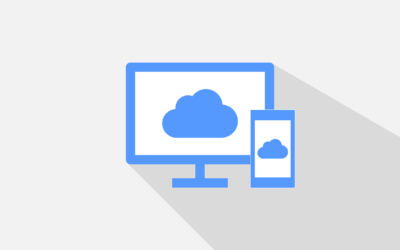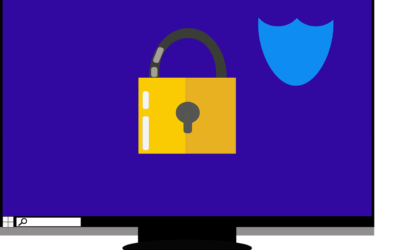Browser extensions have become as common as mobile apps. People tend to download many and use few. There are over 176,000 browser extensions available on Google Chrome alone. These extensions offer users extra functionalities and customization options.
While browser extensions enhance the browsing experience, they also pose a danger which can mean significant risks to online security and privacy.
In this article, we unravel the dangers associated with browser extensions. We’ll shed light on the potential threats they pose as well as provide insights into safeguarding your online presence.
The Allure and Perils of Browser Extensions
Browser extensions are often hailed for their convenience and versatility. They are modules that users can add to their web browsers. They extend functionality and add customizable elements.
From ad blockers and password managers to productivity tools, the variety is vast. But the ease with which users can install these extensions is a weakness because it also introduces inherent security risks.
Next, we’ll delve into the hazards associated with browser extensions. It is imperative to strike a balance between the benefits and dangers.
Key Risks Posed by Browser Extensions
Privacy Intrusions
Many browser extensions request broad permissions. If abused, they can compromise user privacy. Some of these include accessing browsing history and monitoring keystrokes. Certain extensions may overstep their intended functionality. This can lead to the unauthorized collection of sensitive information.
Users often grant permissions without thoroughly reviewing them. This causes them to unintentionally expose personal data to potential misuse.
Malicious Intent
There are many extensions developed with genuine intentions. But some extensions harbor malicious code. This code can exploit users for financial gain or other malicious purposes. These rogue extensions may inject unwanted ads. As well as track user activities or even deliver malware.
These extensions often use deceptive practices. They make it challenging for users to distinguish between legitimate and malicious software.
Outdated or Abandoned Extensions
Extensions that are no longer maintained or updated pose a significant security risk. Outdated extensions may have unresolved vulnerabilities. Hackers can exploit them to gain access to a user’s browser as well as potentially compromising their entire system. Without regular updates and security patches, these extensions become a liability.
Phishing and Social Engineering
Some malicious extensions engage in phishing attacks as well as social engineering tactics. These attacks can trick users into divulging sensitive information.
This can include creating fake login pages or mimicking popular websites. These tactics lead unsuspecting users to unknowingly provide data. Sensitive data, like usernames, passwords, or other confidential details.
Browser Performance Impact
Certain extensions can significantly impact browser performance. This can happen due to being poorly coded or laden with unnecessary features. This results in a subpar user experience. It can also lead to system slowdowns, crashes, or freezing. An extension’s perceived benefits may attract users but they end up unwittingly sacrificing performance.
Mitigating the Risks: Best Practices for Browser Extension Security
1. Stick to Official Marketplaces
Download extensions only from official browser marketplaces such as those connected with the browser developer (Google, Microsoft, etc.). These platforms have stringent security measures in place. This reduces the likelihood of encountering malicious software.
2. Review Permissions Carefully
Before installing any extension, carefully review the permissions it requests. Be cautious if an extension seeks access to unusual data such as data that seems unrelated to its core functionality. Limit permissions to only what is essential for the extension’s intended purpose.
3. Keep Extensions Updated
Regularly update your browser extensions. This ensures you have the latest security patches. Developers release updates to address vulnerabilities and enhance security. If an extension is no longer receiving updates, consider finding an alternative.
4. Limit the Number of Extensions
It’s tempting to install several extensions for various functionalities. But each added extension increases the potential attack surface. Only install extensions that are genuinely needed. Regularly review and uninstall those that are no longer in use.
5. Use Security Software
Use reputable antivirus and anti-malware software. This adds an extra layer of protection against malicious extensions. These tools can detect and remove threats that may bypass browser security.
6. Educate Yourself
Stay informed about the potential risks associated with browser extensions. Understand the permissions you grant. Be aware of the types of threats that can arise from malicious software. Education is a powerful tool in mitigating security risks.
7. Report Suspicious Extensions
If you encounter a suspicious extension, report it. You should report it to the official browser extension marketplace and your IT team. This proactive step helps browser developers take prompt action. That action protects users from potential threats.
8. Regularly Audit Your Extensions
Conduct regular audits of the extensions installed on your browser. Remove any that are unnecessary or pose potential security risks. Maintain a lean and secure browsing environment. This is a key aspect of online security.
Contact Us for Help with Online Cybersecurity
Browser extensions are just one way you or your employees can put a network at risk. Online security is multi-layered. It includes protections from phishing, endpoint threats, and more.
Don’t stay in the dark about your defenses. We can assess your cybersecurity measures and provide proactive steps for better protection.
Give us a call today to schedule a chat.
This Article has been Republished with Permission from The Technology Press.




Recent Comments